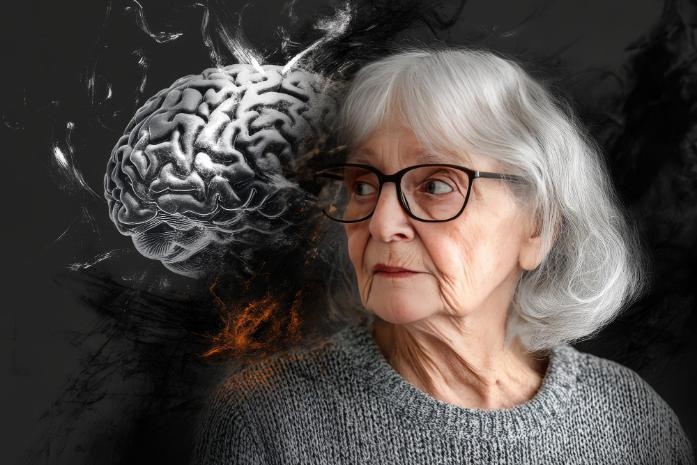The Role of In-Home Care in Alzheimer’s and Dementia Support
Caring for a loved one with Alzheimer’s or dementia can be an emotionally and physically challenging experience. As these conditions progress, seniors require more assistance with daily activities, medical needs, and emotional support. While families often step in to help, there may come a point when professional in-home care is essential. In-home care can make a profound difference in the lives of seniors with Alzheimer’s and dementia by providing specialized support tailored to their needs, ensuring their safety, and enhancing their quality of life. Here’s how in-home care plays a crucial role in supporting individuals with Alzheimer’s and dementia.
1. Assistance with Daily Tasks
For seniors with Alzheimer’s or dementia, completing daily activities can become overwhelming. Simple tasks like dressing, bathing, eating, and grooming can pose difficulties as cognitive function declines. This is where in-home caregivers can step in to assist with these activities, promoting a sense of independence and maintaining dignity.
- Personal care: Caregivers help with bathing, dressing, and grooming, making sure that the individual feels clean, comfortable, and confident.
- Meal preparation: In-home caregivers can assist with meal planning and preparation, ensuring that the individual eats nutritious meals and stays hydrated. They can also help with feeding when necessary, reducing frustration or potential difficulties around eating.
- Medication reminders: Alzheimer’s and dementia often come with memory challenges, which can lead to missed medications. Caregivers ensure medications are taken on time and monitor any side effects, improving overall health and stability.
2. Emotional and Social Support
One of the most significant challenges of Alzheimer’s and dementia is the emotional toll it takes on both the individual and their family. Seniors may experience confusion, anxiety, frustration, or depression as their cognitive abilities decline. In-home care offers essential emotional support to help navigate these challenges.
- Companionship: Caregivers provide companionship, engaging the individual in conversation, playing games, or simply offering a comforting presence. This helps reduce feelings of isolation and loneliness, which are common in individuals with dementia.
- Stimulating activities: In-home caregivers can engage seniors in mentally stimulating activities that promote cognitive function, such as reading, puzzles, or music therapy. These activities can also help alleviate agitation or stress, promoting a sense of calm and happiness.
- Providing reassurance: For individuals with dementia, confusion or memory loss can lead to moments of distress. A caregiver can offer reassurance and guidance, helping the individual navigate their surroundings or remember important details.
3. Ensuring Safety and Comfort
Safety is a significant concern for families caring for someone with Alzheimer’s or dementia. These conditions can impair judgment, memory, and spatial awareness, putting the individual at risk of injury, wandering, or falling. In-home care plays a vital role in ensuring the home environment is safe and that the individual is properly cared for.
- Preventing wandering: Wandering is a common behavior in dementia patients, especially in the later stages of the disease. Caregivers can provide supervision to prevent wandering, ensuring the individual remains in a safe environment.
- Fall prevention: With dementia often comes a decline in balance and coordination. Caregivers can help the individual with mobility, ensuring they move safely around the home. They can also assist with getting in and out of bed, chairs, and the bathroom, reducing the risk of falls.
- Home safety modifications: In-home caregivers can help identify potential hazards in the home and make adjustments to improve safety. This might include removing obstacles, installing grab bars in bathrooms, and ensuring that pathways are clear of clutter.
4. Personalized Care Plans
Every individual with Alzheimer’s or dementia is unique, and so are their care needs. In-home care provides personalized care plans that cater to the specific symptoms and behaviors associated with these conditions. Caregivers work closely with family members and healthcare providers to create a plan that best meets the individual’s needs.
- Tailored routines: A customized care plan allows caregivers to establish daily routines that suit the senior’s needs and preferences. This can help reduce confusion, improve comfort, and minimize agitation, providing a sense of familiarity and security.
- Behavior management: As Alzheimer’s and dementia progress, individuals may exhibit challenging behaviors, such as aggression, repetition, or restlessness. In-home caregivers are trained to manage these behaviors effectively, using strategies that are calming and soothing.
- Support for families: Caregivers also provide support for family members who may be feeling overwhelmed or uncertain. They can offer guidance, share insights, and help families navigate the complexities of caring for someone with Alzheimer’s or dementia.
5. Maintaining Independence and Dignity
While Alzheimer’s and dementia may limit a person’s abilities, maintaining independence and dignity is crucial for overall well-being. In-home care supports seniors in remaining as independent as possible while ensuring they get the help they need. This helps seniors maintain their self-esteem and sense of autonomy, which is essential for emotional health.
- Fostering independence: Caregivers support seniors in performing tasks on their own, offering assistance only when necessary. This encourages seniors to maintain their sense of agency and control over their lives.
- Respecting preferences: In-home care respects the individual’s preferences, routines, and habits. Caregivers take the time to learn what works best for each person, promoting comfort and a sense of normalcy.
Conclusion
In-home care plays a crucial role in enhancing the quality of life for individuals with Alzheimer’s and dementia. With professional caregivers assisting with daily tasks, providing emotional support, ensuring safety, and offering personalized care, seniors can receive the specialized attention they need to live comfortably at home. In-home care also alleviates the burden on family caregivers, providing them with peace of mind knowing that their loved one is in capable hands. If you’re caring for a loved one with Alzheimer’s or dementia, consider the positive impact that in-home care can have in supporting their health, safety, and well-being.



